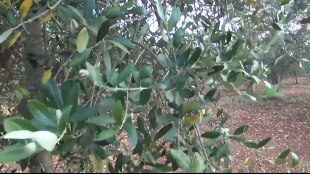- Bellanova: "Lezzi doesn't read cards". The reply after the accusation of transferring funds from the fight against xylella
- Xylella, the European Court of Justice condemns Italy: it has not done enough
- Xylella effect, production collapses: stocks of extra virgin olive oil are running out
- Salento after the xylella: a rural desert instead of olive groves
- Xylella is relentlessly advancing in Puglia: new cases on the border with Basilicata
- Xylella in Salento: 4 million dead trees, lost 10% of Italian production
- Xylella: EU sends new letter of formal notice against Italy
Share
May 30, 2020The Xylella crosses the borders of Salento and arrives in the province of Bari: 5 olive trees have been infected, full-blown, in the countryside of Locorotondo. To announce it is Coldiretti Puglia who denounces "the seriousness of the situation".
A total of 49 olive trees are infected, according to the analysis of the latest samplings, Coldiretti Puglia continues: 2 in Crispiano (Taranto), 3 in Ostuni and 39 in Francavilla Fontana in the province of Brindisi, in addition to 5 in Locorotondo (Bari). Coldiretti points the finger at "the delays in the explants in recent years that have allowed the advance of the disease".
"The new infections detected cause the province of Bari to tremble - underlines Savino Muraglia, president of Coldiretti Puglia -. The scenario is further aggravated, while a shared and univocal strategy between regional, national and community bodies to stop the disease continues to be lacking".
Coldiretti Puglia accuses "the control system of the European Union with colander boundaries that have let infected plant material pass, since the bacterium that is destroying the Apulian olive trees was introduced into Salento from Costa Rica through the Rotterdam trade routes.
Since autumn 2013, the date on which it was ascertained on an olive plot in Gallipoli (Lecce), the disease - continues Coldiretti - has spread without an effective strategy being applied to stop the contagion which, after having dried the olive trees from Lecce, it affected the olive heritage of Brindisi and Taranto and has now also arrived in the province of Bari ".

